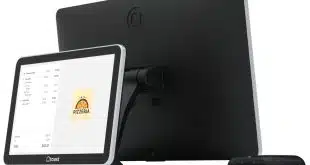Observers have said before that the Covid-19 crisis is reshaping payments. Now executives at PayPal Holdings Inc. expect a growing shift to digital options to be permanent. “People don’t want to touch cash. They don’t want to touch screens. There’s going to be a new normal,” said PayPal chief executive Dan Schulman while answering equity analysts’ questions last month.
Restrictions like shelter at home and social distancing have juiced activity online, a trend Schulman said really picked up steam in April and into early May. That’s in large part because of increased adoption. The company added fully 7.4 million net new active accounts in April, about 140% more than were added just two months earlier and a 90% increase over March.
“I would characterize April as our strongest month since our IPO,” Schulman said, referring to a public offering for PayPal in 2015 that made the company independent of former parent eBay Inc.
On May 1, PayPal “had the largest single day of transactions in our history,” Schulman said, without citing the number. One of its services is mobile peer-to-peer payments, a product PayPal has been refashioning to work in-store. Now, with consumers wary of touching keypads and other point-of-sale gear, Schulman said that shift will accelerate.
“I think we’re hitting a tipping point where people are seeing how easy it is to use digital payments,” Schulman said. Another factor that could augur a lasting trend is that merchants are approaching PayPal “talking about digital first, physical location second,” he told the analysts. “We’ve never seen that.”
In sum, Schulman estimated “online commerce has accelerated two to three years” as a result of the Covid-19 crisis. That growth, he added, will lay increasing emphasis on recent acquisitions like Honey Science Corp., provider of an online shopping assistant. PayPal laid out $4 billion for Honey last year.
Schulman was not alone in his enthusiasm for the opportunity the Covid-19 crisis has created for PayPal. “This is our moment,” chief financial officer John Rainey said during the call with analysts. “We’re not going to just sit back and let things happen to us.”
Still, PayPal hasn’t been entirely immune to weakness in the economy because of what Rainey called the “exogenous shock” of the Covid restrictions. The company’s growth rate in total payment dollar volume slowed to 7% in March from double-digit rates in January and February, he said, as a result of slowdowns in travel spending and cross-border remittances. But that rate rebounded to an estimated 22% in April.
For the quarter, PayPal recorded total payment volume of $191 billion, up 18% year-over-year. Active accounts hit 325 million, including 25 million merchant accounts. That total is up 17% from a year ago. Revenue came to $4.62 billion, a 12% increase over last year’s first quarter.




